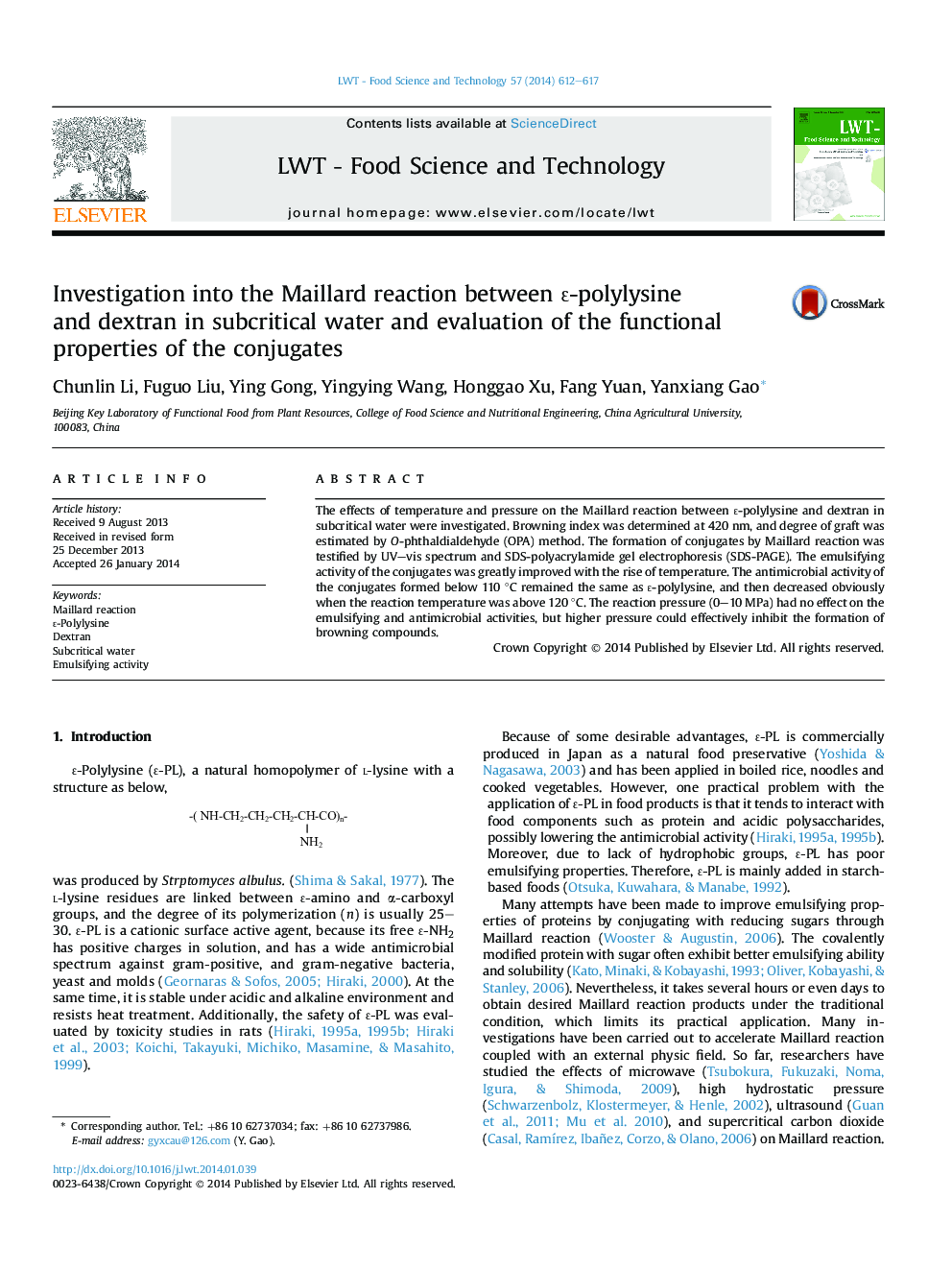| Article ID | Journal | Published Year | Pages | File Type |
|---|---|---|---|---|
| 6403399 | LWT - Food Science and Technology | 2014 | 6 Pages |
â¢The conjugates between É-polylysine and dextran was generated in subcritical water.â¢The emulsifying activity of the conjugates was improved with the rise of reaction temperature (below 120 °C).â¢The antimicrobial activity of the conjugates formed below 110 °C remained the same as É-polylysine.
The effects of temperature and pressure on the Maillard reaction between É-polylysine and dextran in subcritical water were investigated. Browning index was determined at 420 nm, and degree of graft was estimated by O-phthaldialdehyde (OPA) method. The formation of conjugates by Maillard reaction was testified by UV-vis spectrum and SDS-polyacrylamide gel electrophoresis (SDS-PAGE). The emulsifying activity of the conjugates was greatly improved with the rise of temperature. The antimicrobial activity of the conjugates formed below 110 °C remained the same as É-polylysine, and then decreased obviously when the reaction temperature was above 120 °C. The reaction pressure (0-10 MPa) had no effect on the emulsifying and antimicrobial activities, but higher pressure could effectively inhibit the formation of browning compounds.
